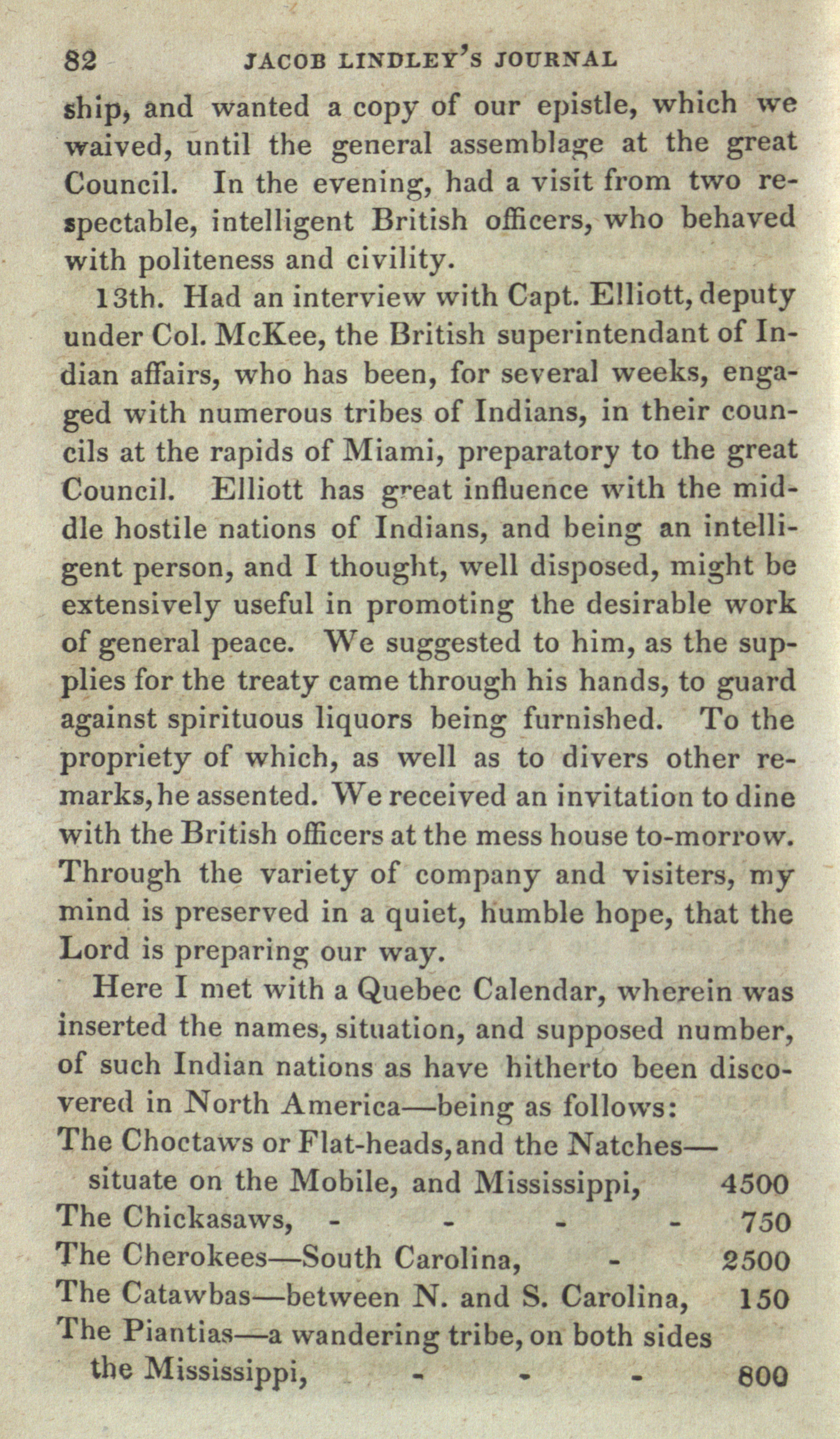ship, and wanted a copy of our epistle,
which we
waived, until the general assemblage at the great
Council. In
the evening, had a visit from two re-
spectable, intelligent British
officers, who behaved
with politeness and civility.
Had an interview with Capt. Elliott, deputy
under Col.
McKee, the British superintendent of In-
dian affairs, who
has been, for several weeks, enga-
ged with numerous tribes of Indians, in
their coun-
cils at the rapids of Miami,
preparatory to the great
Council. Elliott
has great influence with the mid-
dle hostile nations of Indians, and being
an intelli-
gent person, and I thought, well disposed, might be
extensively useful in promoting the desirable work
of general peace. We
suggested to him, as the sup-
plies for the treaty came through his hands,
to guard
against spirituous liquors being furnished. To the
propriety
of which, as well as to divers other re-
marks, he assented. We received an
invitation to dine
with the British officers at the mess house
to-morrow.
Through the variety of company and visiters, my
mind is
preserved in a quiet, humble hope, that the
Lord is preparing our way.
Here I met with a Quebec Calendar, wherein was
inserted the names,
situation, and supposed number,
of such Indian nations as have hitherto
been disco-
vered in North America — being as follows:
situate on the Mobile, and Mississippi, 4500 The Chickasaws, 750 The Cherokees— South Carolina, 2500 The Catawbas — between N. and S. Carolina, 150 The Piantias — a wandering tribe, on both sides
the Mississippi, 800

